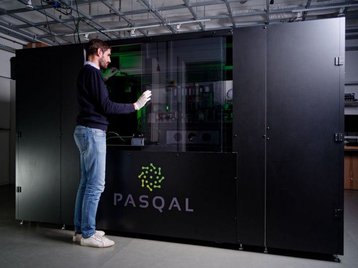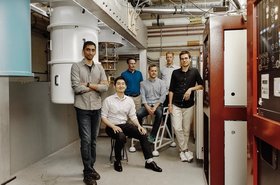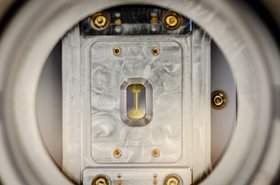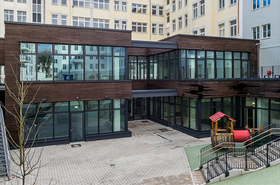Pasqal has been selected by the European High-Performance Computing Joint Undertaking (EuroHPC JU) to provide a neutral atom-based quantum simulator.
The contract is valued at €13 million ($14m) and will see Pasqal providing a system - dubbed EuroQCS-Italy - with at least 140 analogue-mode qubits, to be hosted by CINECA in Bologna, Italy.
The system will be integrated with the Leonardo supercomputer.
The quantum simulator will be upgraded in 2027 to offer a neutral atom quantum simulator operable in a hybrid analogue/digital mode. The upgrade will enable users to design more sophisticated Hamiltonians and implement a wider range of quantum algorithms and use cases.
Pasqal's quantum computer uses neutral-atom technology. Each qubit is realized with a single neutral atom whose electronic energy levels represent the 0 and 1 states of the qubit. The atoms are trapped into an "atomic registry" using optical tweezers, and computations can then be achieved by shining fine-tuned laser pulses onto the atoms. The quantum computer can operate at room temperature, which differs from many quantum technologies that require supercooling.
According to EuroHPC, the simulator will enable the "exploration of quantum many-body physics, optimization problems, and machine learning applications" and will support the development of advanced simulations in material science, quantum chemistry, and logistics.
The simulator is being jointly funded by EuroHPC JU (50 percent), while the remaining 50 percent is being provided by the Italian Ministry of University and Research (Ministero dell’Università e della Ricerca – MUR) through ICSC, the Italian High-Performance Computing, Big Data e Quantum Computing Research Centre established in the framework of Italy’s National Recovery and Resilience Plan (PNRR/RRF funds).
Earlier this month, IQM was selected to integrate one of the former's Radiance quantum computers with the Leonardo supercomputer. The 54-qubit system is expected to be delivered and installed in Q4 2025.
The Leonardo system was first announced in 2020 and inaugurated in November 2022. The €120 million ($124.5m) system placed ninth on the most recent edition of the Top500 list of the world’s most powerful supercomputers.
In September 2024, the EuroHPC JU announced plans to spend €28 million ($31.26m) upgrading Leonardo to better take on artificial intelligence workloads.
This month also saw Pasqal's neutral-atom quantum computing technology become available via the Microsoft Azure Quantum cloud service.







